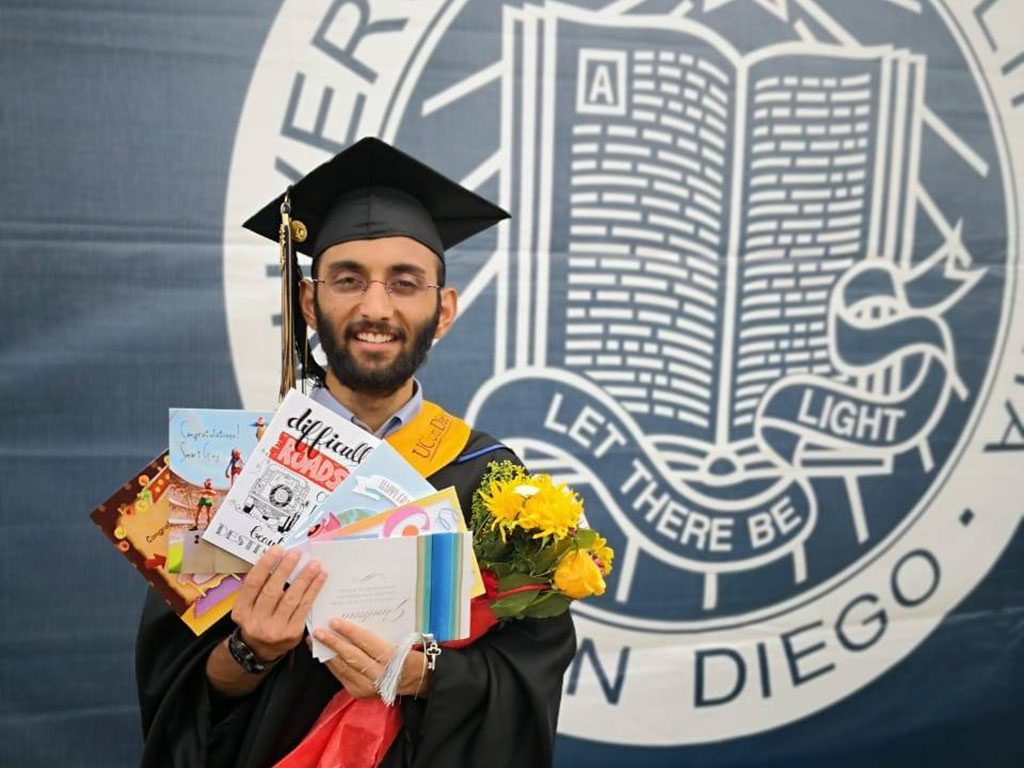How international collaboration strengthened technological innovation

Global UGRAD-Pakistan alumnus Muhammad Haseeb built a machine-learning algorithm using technical skills he developed during his program in the United States. By collaborating with an American data and software company, he filed and received a U.S. patent for the algorithm, a considerable achievement to help improve efficiency in machine learning that will strengthen the technology sector in both the United States and Pakistan.
Building leadership skills for professional advancement
During his Global UGRAD-Pakistan experience at Fairleigh Dickinson University in Teaneck, New Jersey, Haseeb studied mechanical engineering and worked on an autonomous-vehicle project. This was his first exposure to artificial intelligence and OpenCV, a computer vision and machine-learning software library built to advance the use of machine perception in commercial products.
At his home institution in Pakistan, Haseeb applied the skills he learned during the program to create a remotely operated underwater vehicle as his undergraduate final year project.
“All of these projects kept my focus and intent on robotics. The experiences collectively shaped my mind and motivated me towards machine learning,” Haseeb said. “If it wasn’t for Global UGRAD-Pakistan, I may not have gotten a chance to work so closely on a self-driving car project.”
After graduating, Haseeb worked at technology start-ups, took online courses in machine learning, and later worked as a software engineer in Pakistan for Afiniti, an American data and software company.
While continuing his online coursework, Haseeb discovered a machine-learning algorithm for searching large amounts of data. He modified it and invented a clustering algorithm that identifies similarities between unknown items, groups them together, and separates the data into sets that can be fed into other machine-learning models for prediction tasks.
“The algorithm itself is part of a bigger movement towards machine learning,” explains Haseeb. “[Machine Learning] can allow you to optimize the use of agricultural land, water usage, or even power grid movement.”
Haseeb says his experience in the United States pushed him out of his comfort zone, made him take risks, and gave him the opportunity to become more creative. “Independent decision-making gave me the courage to try new methods, academically and professionally, fail repeatedly, and... accomplish something solid.”
Fueling the technology sector in the U.S. and Pakistan
Haseeb continued developing his algorithm and approached the CEO of Afiniti to pitch his invention.
He succeeded.
“Giving class presentations and participating in class discussions, as well as interacting with people all over the world while on Global UGRAD-Pakistan improved my communication skills,” states Haseeb. “It helped me learn to convey technical ideas to others in a simplistic manner and convey my algorithm idea.”
With the help of Afiniti, he filed and received a U.S. patent for his algorithm, a win for the company and Haseeb.
To gain more experience in software engineering, Haseeb left Afiniti and returned to the United States to pursue a master’s degree in computer science at University of California San Diego.
“Global UGRAD-Pakistan is probably my biggest life-changing experience. Exchange programs can have a long-term effect on international collaboration between countries.”
The Global Undergraduate Exchange Program in Pakistan is sponsored by the U.S. Department of State with funding provided by the U.S. Government and administered by IREX.